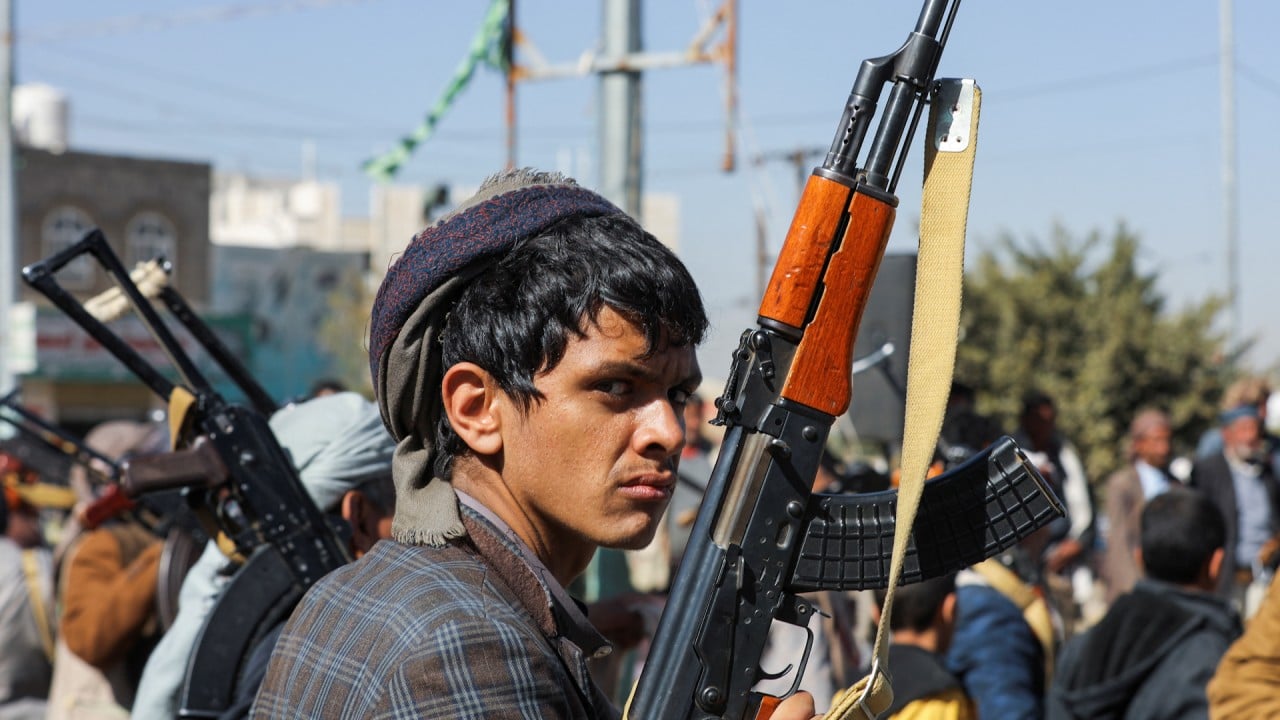But official statements from either side made no mention of the issue.
The Chinese foreign ministry also called the talks “productive”, saying both sides discussed global issues including the Middle East, again without providing details.
Nonetheless, observers said some progress was likely to have been made, though Washington could still be doubtful of Beijing’s willingness to be caught up in conflict in a region where some of its key interests lie.
Zhiqun Zhu, a professor of international relations at Bucknell University in the US, said the Red Sea attacks were likely to have been discussed.
US strikes militia sites in Iraq, Houthi anti-ship missiles in Yemen
US strikes militia sites in Iraq, Houthi anti-ship missiles in Yemen
“Essentially, the Chinese side believes this is not an issue created by Iran, so putting pressure on Iran would not solve the fundamental problem here,” Zhu said.
Analysts have attributed Beijing’s reticence to a reluctance to get involved in a deepening Middle East conflict, especially since Chinese ships had not been targeted. Wang, however, has previously warned against adding “fuel to the fire”, in a veiled reference to attacks on Houthi targets by a US-led coalition.
David Arase, resident professor of international politics with the Hopkins-Nanjing Centre for Chinese and American Studies, said the issue was “too important to avoid” but “too sensitive to mention given the stakeholders involved”.
China, he said, would not want to undermine Iran’s interests or cause Iran to “lose face”.
At the same time, it did not want to portray itself as joining hands with the US to combat anti-Western forces while the Israel-Gaza conflict raged on.
“But if only to protect its own commercial interests and promote another Biden-Xi dialogue, China likely is willing to ask Iran to temper the Red Sea mayhem being caused by the Houthis.”
Reuters on Friday reported that China had pressed Iran to rein in the Houthis “or risk harming business relations with Beijing”, citing four Iranian sources and a diplomat familiar with the matter.
The US and China have sought to get ties on an even keel following the closely watched November 15 meeting in San Francisco between Chinese President Xi Jinping and his American counterpart Joe Biden, which was hailed as a “new starting point” by Wang.
The White House readout on the Bangkok talks said the two sides were committed to pursuing “additional high-level diplomacy … including through a call between President Biden and President Xi”.
Alfred Wu, an associate professor at the National University of Singapore’s Lee Kuan Yew School of Public Policy, said the “good news” from the Wang-Sullivan talks was the apparent “clear gesturing” from China that it needed to cooperate with the US, especially on global issues like the Red Sea attacks.
US seeks just-tough-enough response to deadly Middle East attack
US seeks just-tough-enough response to deadly Middle East attack
“The ideological gap between the two countries is huge and both sides are very divided but they do seek cooperation,” he said. “The US will be happy to see China do something to reduce tensions in the region.”
Still, Arase said the US would be sceptical about how much China would do to pressure Iran .
“China does not want to tread on Iran’s core interests or anger ‘the street’ in the Middle East seemingly only to please the US,” he said. “Nor does China want to lose face by having its demands rejected and denounced by those whom it is courting.”
As the conflict deepened over the weekend – with three US soldiers killed in a drone attack in Jordan – Zhu expected Washington to escalate its assault on the Houthis and also further urge Beijing to help control the rebel group via Iran.
Like Arase, Zhu also said that, despite its keenness to mend ties with the US, China might not want to jeopardise its other interests in the region, including relations with Iran and the Arab states.



